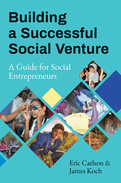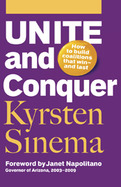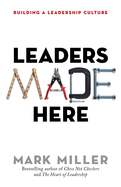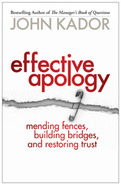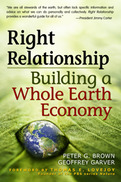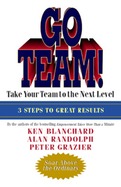Search Results: "building resilience"
Results 25-30 of 463
This is the first book on creating and running a social enterprise to combine theoretical discussions with current cases from around the world, filling a huge gap in the literature. It serves as an eminently practical blueprint for those who wish to build, sustain, and grow social ventures.
Building a Successful Social Venture draws on Eric Carlson's and James Koch's pioneering work with the Global Social Benefit Institute, cofounded by Koch at Santa Clara University's Miller Center for Social Entrepreneurship. Since 2003, over 200 Silicon Valley executives have mentored more than 800 aspiring social entrepreneurs at the GSBI. It is this unparalleled real-world foundation that truly sets the book apart. Early versions of the book were used in both undergraduate and MBA classes.
Part 1 of the book describes the assumptions that the GSBI model is based on: a bottom-up approach to social change, a focus on base-of-the-pyramid markets, and a specific approach to business planning developed by the GSBI. Part 2 presents the seven elements of the GSBI business planning process, and Part 3 lays out the keys to executing it. The book includes “Social Venture Snapshots” illustrating how different organizations have realized elements of the plan, as well as a wealth of checklists and exercises.
Social ventures hold enormous promise to solve some of the world's most intractable problems. This book offers a tested framework for students, social entrepreneurs, and field researchers who wish to learn more about the application of business principles and theories of change for advancing social progress and creating a more just world.
Building a Successful Social Venture draws on Eric Carlson's and James Koch's pioneering work with the Global Social Benefit Institute, cofounded by Koch at Santa Clara University's Miller Center for Social Entrepreneurship. Since 2003, over 200 Silicon Valley executives have mentored more than 800 aspiring social entrepreneurs at the GSBI. It is this unparalleled real-world foundation that truly sets the book apart. Early versions of the book were used in both undergraduate and MBA classes.
Part 1 of the book describes the assumptions that the GSBI model is based on: a bottom-up approach to social change, a focus on base-of-the-pyramid markets, and a specific approach to business planning developed by the GSBI. Part 2 presents the seven elements of the GSBI business planning process, and Part 3 lays out the keys to executing it. The book includes “Social Venture Snapshots” illustrating how different organizations have realized elements of the plan, as well as a wealth of checklists and exercises.
Social ventures hold enormous promise to solve some of the world's most intractable problems. This book offers a tested framework for students, social entrepreneurs, and field researchers who wish to learn more about the application of business principles and theories of change for advancing social progress and creating a more just world.
Unite and Conquer
2009
Old-school divide-and-conquer tactics—demonizing opponents, frightening voters, refusing to compromise—may make us feel good about the purity of our ideals, but it's no way to get anything done. Worse, this approach betrays some of the most cherished ideals of the progressive movement: inclusion, reason, justice, and hope. Illuminated by examples from her own work and a host of campaigns across the country, Kyrsten Sinema shows how to forge connections—both personal and political—with seemingly unlikely allies and define our values, interests, and objectives in ways that broaden our range of potential partners and expand our tactical options. With irreverent humor, enthralling campaign stories, and solid, practical advice, Sinema enables us to move past “politics as war” and build support for progressive causes on the foundation of our common humanity.
Leaders Made Here
2017
Leaders Made Here
Great leaders create great organizations. However, a scarcity of leaders today means a shortfall in performance tomorrow. Don't gamble with your company's future!
You don't need to hope that leaders emerge from the ranks or that search firms can find the leaders you need in a timely fashion. Hope is not a strategy! You can build an organizational culture that will ensure your leadership pipeline is full and flowing.
Bestselling author and Chick-fil-A executive Mark Miller describes how to nurture leaders throughout the organization, from the front lines to the executive ranks. Leaders Made Here outlines a clear and replicable approach to creating the leadership bench every organization needs.
To bring his ideas to life, Miller uses the story of Blake, a new CEO, and Charles and old friend and colleague, as they search for the best practices from around the world to ensure a continuous supply of their most precious asset – leaders. Blake and his team then translate their findings into a practical plan that any organization can use to create a leadership culture, sustained competitive advantage, and long-term success.
Great leaders create great organizations. However, a scarcity of leaders today means a shortfall in performance tomorrow. Don't gamble with your company's future!
You don't need to hope that leaders emerge from the ranks or that search firms can find the leaders you need in a timely fashion. Hope is not a strategy! You can build an organizational culture that will ensure your leadership pipeline is full and flowing.
Bestselling author and Chick-fil-A executive Mark Miller describes how to nurture leaders throughout the organization, from the front lines to the executive ranks. Leaders Made Here outlines a clear and replicable approach to creating the leadership bench every organization needs.
To bring his ideas to life, Miller uses the story of Blake, a new CEO, and Charles and old friend and colleague, as they search for the best practices from around the world to ensure a continuous supply of their most precious asset – leaders. Blake and his team then translate their findings into a practical plan that any organization can use to create a leadership culture, sustained competitive advantage, and long-term success.
Effective Apology
2009
Politicians apologizing, celebrities needing to apologize, and business leaders failing at the attempt fill today's headlines. In fact, we all have occasion to apologize. But we don't need more apologies, says John Kador. We need more effective ones that restore strained relationships, create possibilities for growth, and generate better outcomes for all.
Effective Apology challenges you to think about the fundamental value of an apology, to you and the receiver, as it explores in detail the key dimensions—what Kador calls the Five Rs—of a wholehearted apology, one that heals and renews. Kador also offers advice on how to accept or reject an apology, ten apology dos and don'ts, and a quiz to test your Apology Quotient.
The willingness to apologize signals strength, character, and integrity—real leadership is impossible without it. With over 70 examples of the good, the bad, and the ineffective apology in action, no other book combines such a practical, how-to approach with a rich analysis of what it takes to make apology work in the real world.
Effective Apology challenges you to think about the fundamental value of an apology, to you and the receiver, as it explores in detail the key dimensions—what Kador calls the Five Rs—of a wholehearted apology, one that heals and renews. Kador also offers advice on how to accept or reject an apology, ten apology dos and don'ts, and a quiz to test your Apology Quotient.
The willingness to apologize signals strength, character, and integrity—real leadership is impossible without it. With over 70 examples of the good, the bad, and the ineffective apology in action, no other book combines such a practical, how-to approach with a rich analysis of what it takes to make apology work in the real world.
Right Relationship
2009
In this groundbreaking guide to building an ethical economy, Peter Brown and his colleagues at the Quaker Institute for the Future show readers how a system that embodies the core Quaker principle of "right relationship" can deliver a more equitable and sustainable future.Our current economic system—which assumes endless growth and limitless potential wealth—flies in the face of the fact that the earth’s resources are finite. The result is increasing destruction of the natural world and growing, sometimes lethal, tension between rich and poor, global north and south. Trying to fix problems piecemeal is not the solution. We need a comprehensive new vision of an economy that can serve people and all of life’s commonwealth.
Peter G. Brown and Geoffrey Garver use the core Quaker principle of “right relationship”—interacting in a way that is respectful to all and that aids the common good—as the foundation for a new economic model. Right Relationship poses five basic questions: What is an economy for? How does it work? How big is too big? What’s fair? And how can it best be governed? Brown and Garver expose the antiquated, shortsighted, and downright dangerous assumptions that underlie our current answers to these questions, as well as the shortcomings of many current reform efforts. They propose new answers that combine an acute awareness of ecological limits with a fundamental focus on fairness and a concern with the spiritual, as well as material, well-being of the human race. Brown and Garver describe new forms of global governance that will be needed to get and keep the economy in right relationship. Individual citizens can and must play a part in bringing this relationship with life and the world into being.
Ultimately the economy, as indeed life itself, is a series of interconnected relationships. An economy based on the idea of “right relationship” offers not only the promise of a bountiful future but also an opportunity to touch the fullness of human meaning and, some would say, the presence of the Divine.
Go Team!
2007
All of us in the today's workforce are called upon more and more to work effectively in teams. But do you know how to build a team that truly takes advantage of the knowledge, experience, and motivation of its members? Most of us don't, and we quickly become frustrated, give up, and opt to go it alone-not a good solution in today's business environment. Fortunately, there is a better way. Here, expert authors Ken Blanchard, Alan Randolph, and Peter Grazier outline a 3-step process that will help you transform any kind of team into a Next-Level Team-one that uses all team members' ideas and motivation more effectively, makes better use of team members' and team leaders' time, and generates benefits for individual team members, the team, and the organization.
Designed as a working guide filled with detailed instructions for people who want to build high performing teams, Go Team! will lead you, step by step, to great results.
Through discussions, case examples, and questions to consider, you and your teammates will learn how to share information to build high levels of trust and responsibility; set clear boundaries to create the freedom for team members to act responsibly; and develop self-managing skills to make good team decisions. With Go Team! as a guide, you'll find that working in a team can be fun, satisfying, and highly productive.
Designed as a working guide filled with detailed instructions for people who want to build high performing teams, Go Team! will lead you, step by step, to great results.
Through discussions, case examples, and questions to consider, you and your teammates will learn how to share information to build high levels of trust and responsibility; set clear boundaries to create the freedom for team members to act responsibly; and develop self-managing skills to make good team decisions. With Go Team! as a guide, you'll find that working in a team can be fun, satisfying, and highly productive.
- Coauthored by Ken Blanchard, coauthor of The One Minute Manager and numerous other international bestsellers
- Provides a guided, 3-step process for turning a group of people into a Next-Level Team that can and does achieve great results
- Includes many case examples of teams that have become Next-Level Teams


